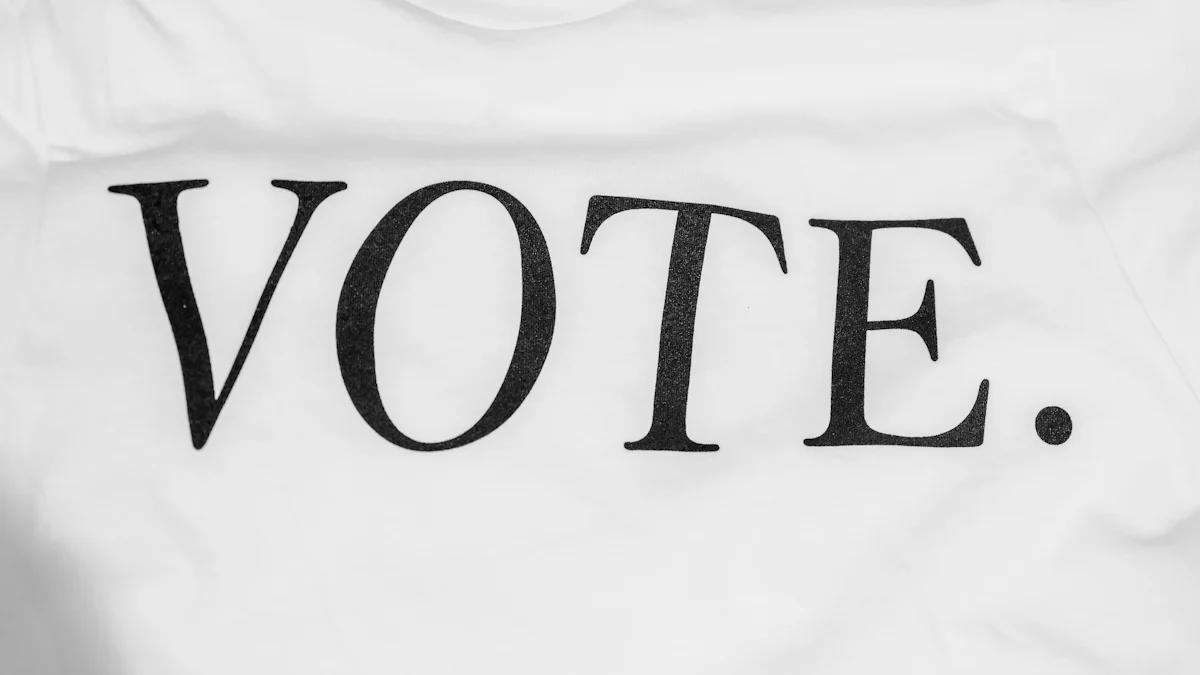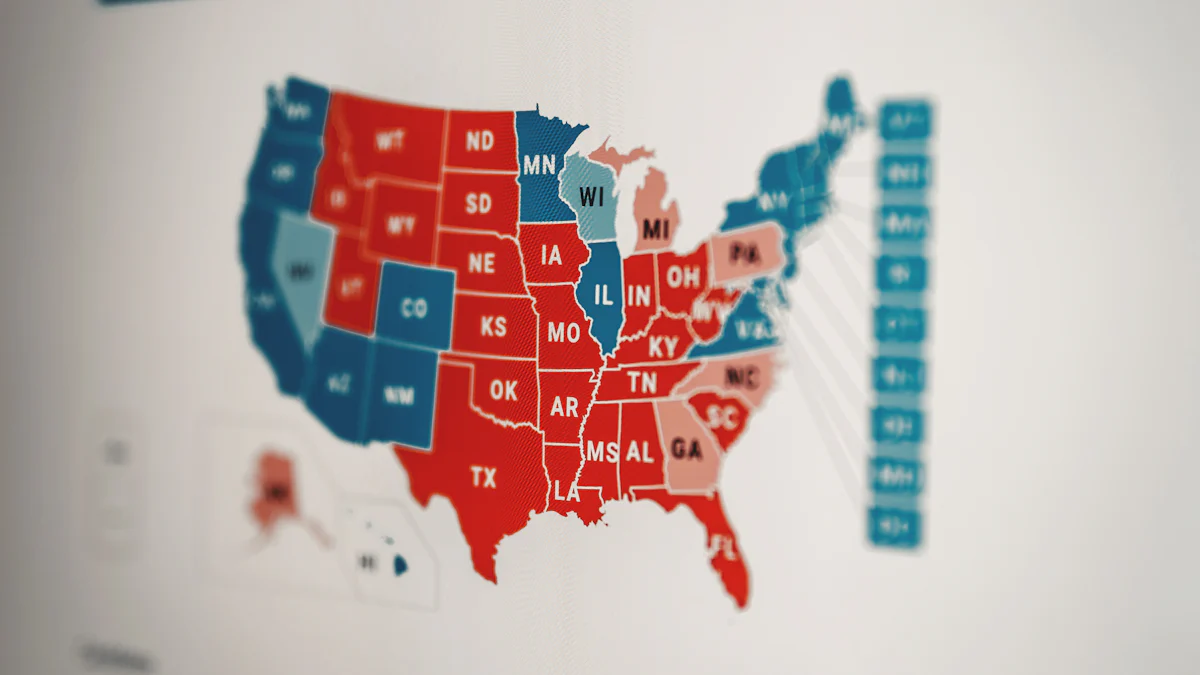Effective Mediation Strategies for a Stress-Free Election Season

Election season often brings heightened emotions and potential conflicts. More than two-thirds of American adults report significant stress during elections, with the 2020 election between Biden and Trump being particularly intense. The divisive nature of elections can strain personal relationships and community bonds. Effective mediation plays a crucial role in maintaining peace and reducing stress. Mediation helps manage political discussions and fosters understanding among individuals. By focusing on active listening and empathy, communities can navigate the election period smoothly.
Understanding the Sources of Election-Related Stress

Political Polarization
Impact on Personal Relationships
Political polarization often strains personal relationships. Friends and family members may find themselves on opposite sides of political debates. The Debate Between Joe Biden and Trump in 2020 exemplified this divide. Many Americans experienced election anxiety due to the intense political climate. According to Breland-Noble, partisan polarization significantly drives stress and anxiety among Americans. Constant exposure to political stress can lead to mental health risks, including anxiety and depression.
Community Divisions
Political polarization also affects communities. Divisions within communities can lead to social fragmentation. Breland-Noble emphasizes that affective polarization destabilizes society more than policy polarization. Community members may support leaders who harm democracy, increasing targeted violence. This environment fosters election anxiety and deteriorates community bonds.
Media Influence
Sensationalism and Misinformation
The media plays a significant role in shaping public perception during elections. Sensationalism and misinformation contribute to election anxiety. News outlets often prioritize shocking headlines over factual reporting. Bufka notes that constant exposure to sensational news can heighten stress levels. Misinformation spreads quickly, leading to confusion and fear among the public.
Social Media Dynamics
Social media platforms amplify political tensions. Users often encounter echo chambers that reinforce their beliefs. Bufka points out that social media dynamics can exacerbate election anxiety. People may engage in heated debates, leading to emotional exhaustion. The rapid spread of misinformation on social media further complicates the situation.
Personal Stakes
Economic Concerns
Elections often bring economic uncertainties. Many individuals worry about how election outcomes will impact their financial stability. Breland-Noble highlights that economic concerns contribute to election anxiety. People may fear job loss, changes in tax policies, or shifts in the economy. These worries can lead to significant stress and anxiety.
Social and Cultural Issues
Social and cultural issues also play a role in election anxiety. Individuals may feel that their values and beliefs are under threat. Bufka mentions that social and cultural concerns can lead to heightened emotions during elections. People may worry about changes in social policies, healthcare, and education. These concerns add to the overall stress experienced during election seasons.
Core Mediation Strategies
Active Listening
Techniques for Effective Listening
Active listening involves more than just hearing words. It requires full attention and engagement. Listeners should maintain eye contact and nod occasionally. Paraphrasing what the speaker says can show understanding. Avoid interrupting or planning a response while the other person speaks. Dr. Martin Luther King, Jr. emphasized the importance of feeling heard by stating, "A riot is the language of the unheard." This highlights the need for effective listening.
Benefits of Active Listening in Conflict Resolution
Active listening can transform conflicts into productive discussions. It helps individuals feel valued and understood. This approach reduces misunderstandings and fosters mutual respect. According to Goldberg, active listening can de-escalate tense situations. People are more likely to find common ground when they feel heard.
Neutral Facilitation
Role of a Neutral Mediator
A neutral mediator plays a crucial role in conflict resolution. The mediator remains impartial and does not take sides. This neutrality helps build trust among conflicting parties. Goldberg notes that a neutral mediator can guide discussions and keep them focused. The mediator ensures that everyone has an opportunity to speak.
Steps to Ensure Neutrality
Maintaining neutrality requires specific steps. A mediator should avoid expressing personal opinions. The mediator must treat all parties equally and with respect. Goldberg told Insider that transparency about the mediation process is essential. This includes explaining the rules and goals of the mediation. The mediator should also manage time effectively to give each party a fair chance to speak.
Empathy and Understanding
Building Empathy in Discussions
Empathy involves seeing things from another person's perspective. This can be challenging but is essential for meaningful dialogue. Jon Kabat-Zinn, a pioneer in mindfulness, emphasizes the importance of empathy. Practicing mindfulness can help individuals become more empathetic. Techniques like deep breathing and meditation can enhance empathy.
Techniques to Foster Understanding
Several techniques can foster understanding in discussions. Asking open-ended questions encourages deeper conversations. Reflecting on what the other person says can show genuine interest. Kabat-Zinn suggests using mindfulness practices to stay present during discussions. This can help individuals respond thoughtfully rather than react impulsively. Massachusetts Medical School offers programs to teach these techniques.
Practical Steps for a Stress-Free Election Season

Setting Boundaries
Managing Political Discussions
Managing political discussions can help reduce election-related stress. Setting clear boundaries with friends and family members can prevent heated debates. Politely inform others about the desire to avoid political topics. This approach helps maintain peace and reduces anxiety. Creating a list of acceptable topics for discussion can also be helpful. This strategy ensures conversations remain respectful and stress-free.
Creating Safe Spaces
Creating safe spaces for open dialogue can foster understanding. Designate specific areas where political discussions are allowed. Ensure these spaces promote calm and respectful conversations. Encourage participants to listen actively and show empathy. Safe spaces can help individuals feel heard and respected. This approach can reduce tension and promote healthy communication.
Stress Management Techniques
Mindfulness and Meditation
Mindfulness and meditation can significantly reduce election stress. Practicing mindfulness helps individuals stay present and focused. Techniques like deep breathing and guided meditation can bring calm. The Headspace mental health coach offers valuable resources for mindfulness practices. Regular meditation can lower anxiety and improve overall health. The Mindfulness-based Stress Reduction protocol provides structured guidance for managing stress.
Physical Activity and Relaxation
Physical activity is an effective way to manage stress and anxiety. Engaging in regular exercise releases endorphins, which improve mood. Activities like walking, yoga, and swimming can help maintain physical health. Relaxation techniques such as deep breathing and progressive muscle relaxation can also reduce stress. Incorporating these practices into daily routines can enhance well-being during the election season.
Community Engagement
Promoting Civil Discourse
Promoting civil discourse within communities can reduce election stress disorder. Encourage open and respectful conversations about political issues. Host community forums where individuals can share their views calmly. Providing guidelines for civil discourse can help maintain order. This approach fosters mutual respect and understanding among community members.
Organizing Community Events
Organizing community events can strengthen bonds and reduce election anxiety. Plan activities that bring people together, such as potlucks or sports events. These gatherings provide opportunities for positive interactions. Community events can distract from the stress of the election season. Engaging in fun and relaxing activities can improve mental health and reduce anxiety.
Effective mediation and stress management remain crucial during the election season. Applying these strategies can help maintain peace and reduce anxiety. Techniques like active listening, neutral facilitation, and empathy can transform conflicts into productive discussions. Mindfulness practices, such as meditation, can significantly lower stress levels.
Encouraging community engagement and promoting civil discourse can foster a peaceful environment. The American Psychiatric Association emphasizes the importance of mental health during stressful times. Americans should prioritize their well-being by implementing these practical steps. A stress-free election season benefits everyone.
See Also
Key Meditative Practices for a Relaxing Getaway
Best Ways to Relax in 2024: Naturally Unwind and De-stress
Effective Strategies for Stress Management Through Relaxation
Guide to a Healthy Digital Detox for Mental Well-being
Crafting a Soothing Morning Schedule for Improved Mental Health

